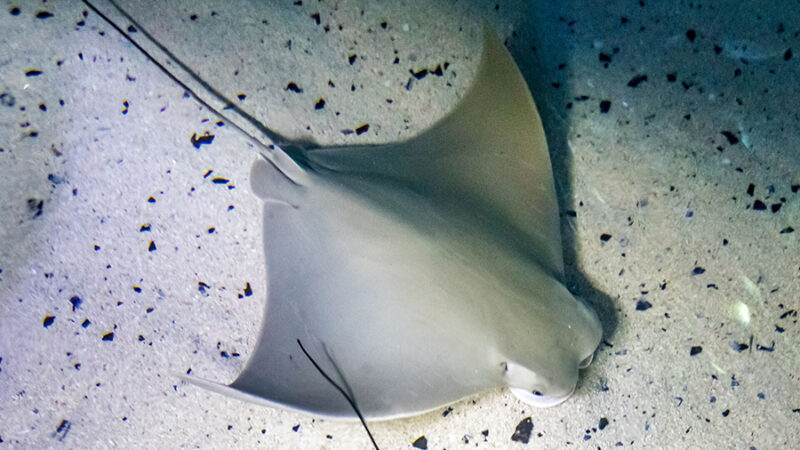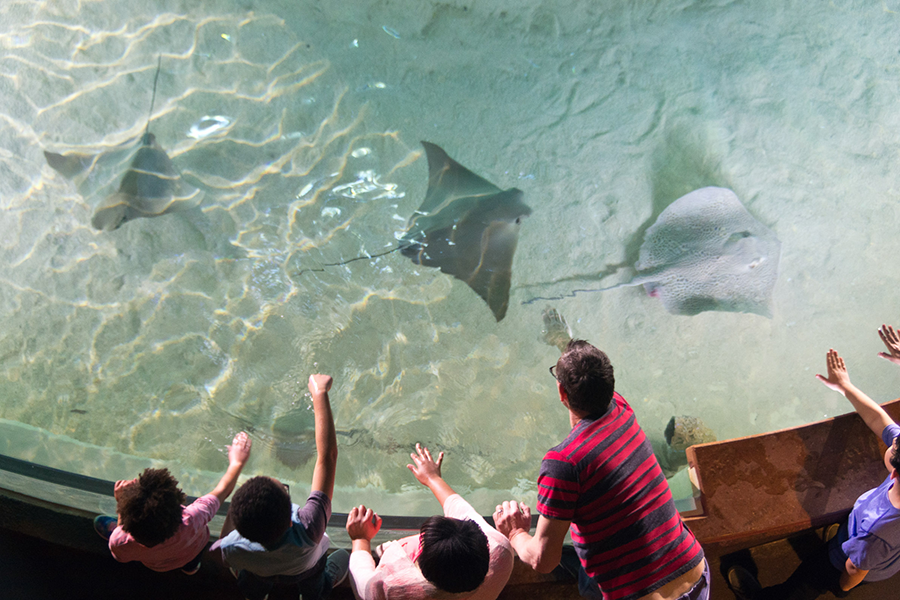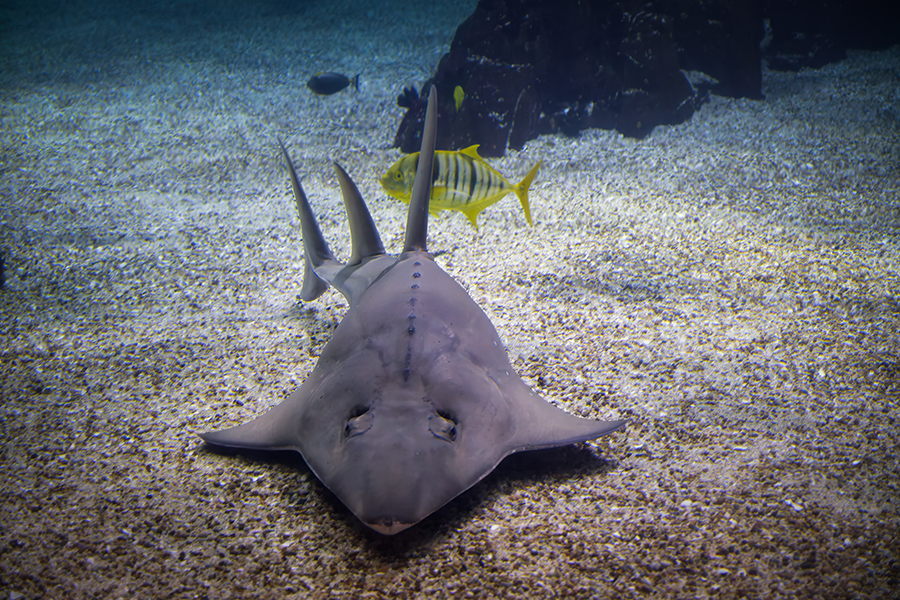Cownose Ray

- Common Name: Cownose Ray
- Scientific Name: Rhinoptera bonasus
- Diet: Clams, oysters
- Range: Tropical waters in the western Atlantic Ocean
- Size: Average wingspan of 3 feet, up to 50 pounds
- Lifespan: Around 15 years
IUCN Red List Status: Vulnerable
Vulnerable
NE
DD
LC
NT
VU
EN
CR
EW
EX
Overview
Cownose rays are known to commonly visit Chesapeake Bay from May to October. Males leave the bay in June or July while the females will remain until the fall.
Geographical Distribution and Habitat
Cownose rays tend to stick to shallow coastal waters along the western Atlantic Ocean. These rays will form schools based on both sex and age as they travel.

Diet
Their diet mostly consists of mollusks. Oysters, both hard- and soft-shelled clams, and the occasional bony fish are these rays’ main sources of food.
Fun Facts
- The largest cownose ray ever recorded was 7 feet long from wing tip to wing tip.
- Cownose rays have mildly poisonous stingers, typically only used when they feel threatened.
- These rays are strong swimmers and have been seen migrating in groups of up to 10,000.
Learn About Other Animals
Shipwreck Reef
Epaulette Shark
- Common Name: Epaulette Shark
- Scientific Name: Hemiscyllium ocellatum
- Diet: Crustaceans, polychaete worms, small fish
- Range: Southern coast of New Guinea, northern coast of Australia
- Size: 3 feet, 6 pounds
- Lifespan: 20 to 25 years
Common Guitarfish
- Common Name: Common guitarfish
- Scientific Name: Rhinobatos rhinobatos
- Diet: Crustaceans and small fish
- Range: Eastern Atlantic, Mediterranean Sea
- Size: 3 to 6 feet, 30 to 60 lbs
- Lifespan: 15 to 25 years


